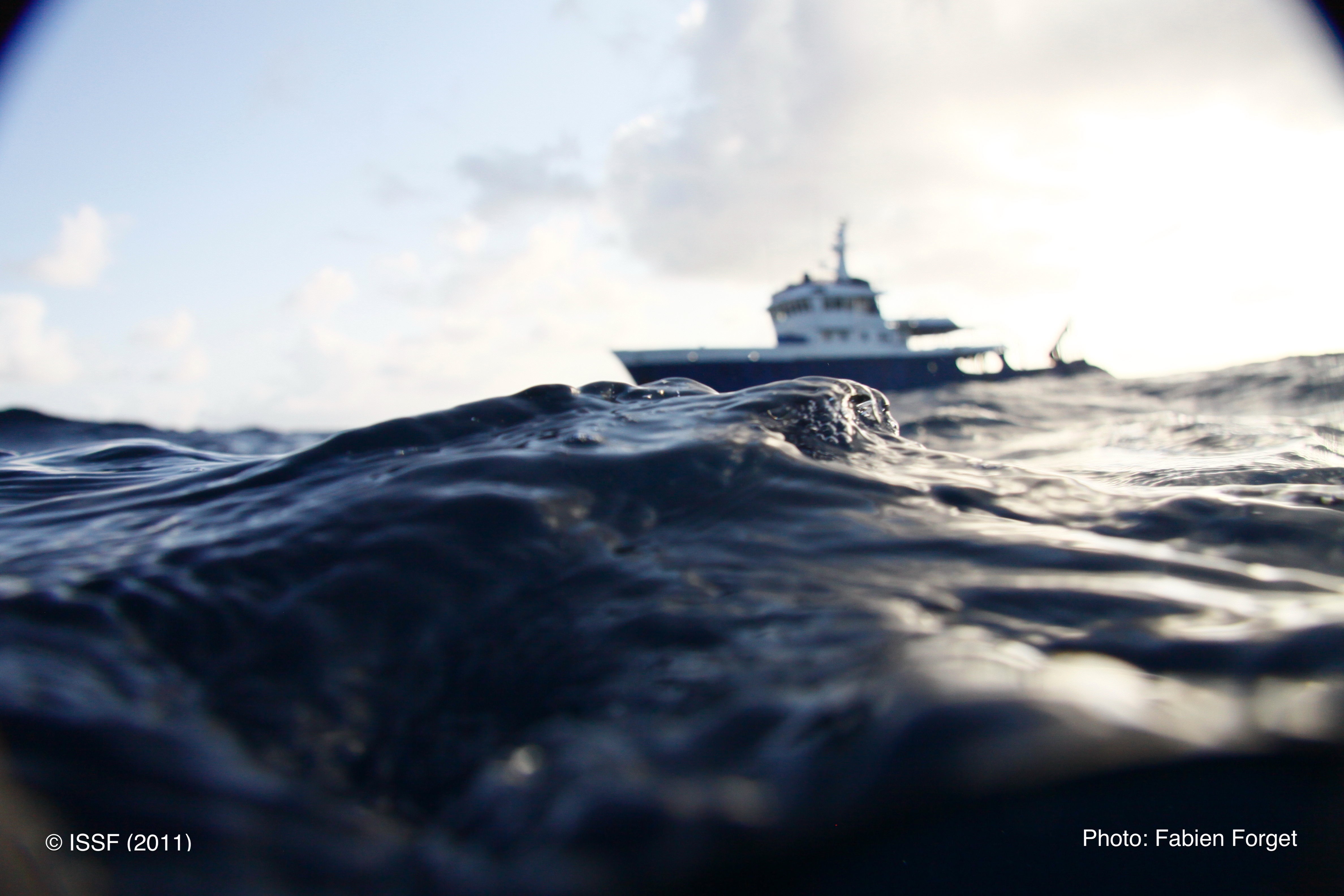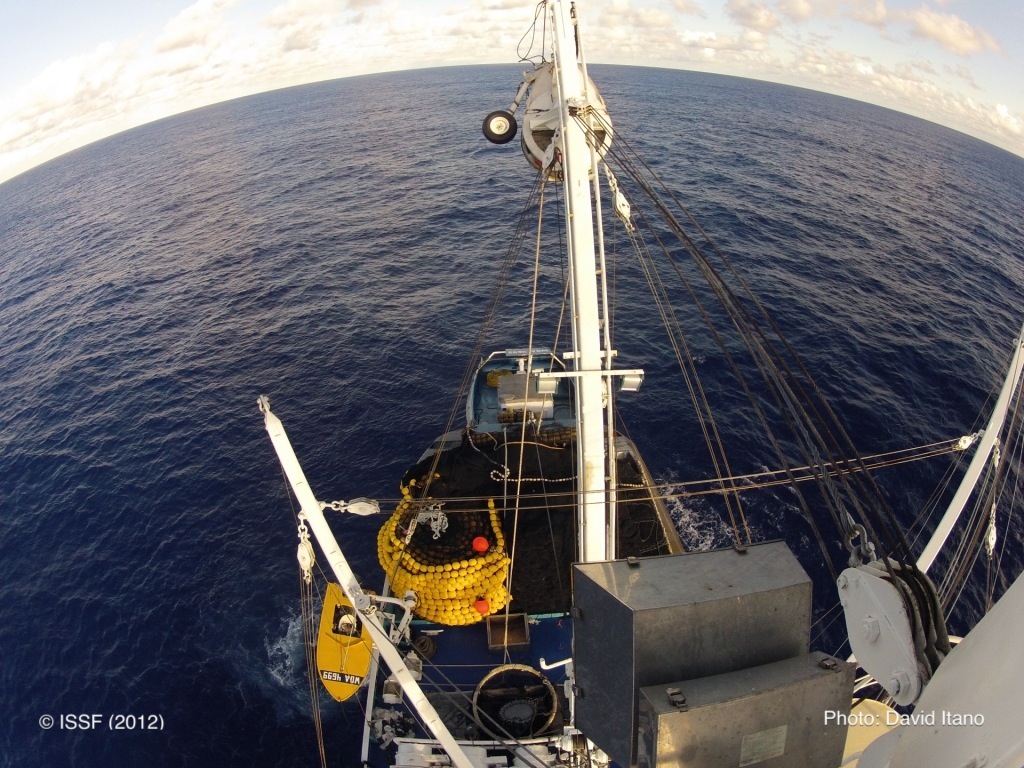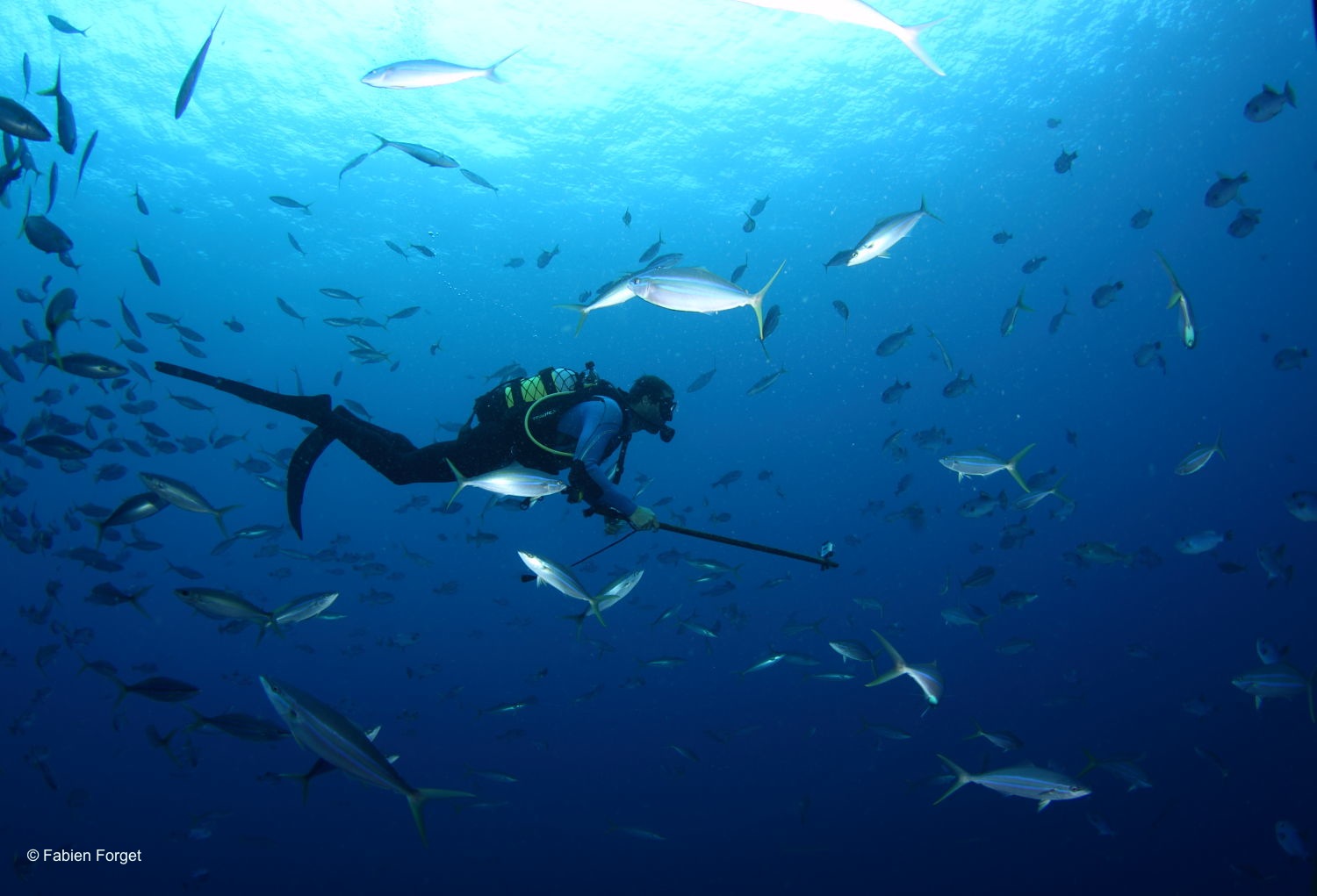
Indian Ocean Fisheries Managers Adopt Strongest FAD Management Measure Among Tuna RFMOs
ISSF applauds a productive annual meeting of the Indian Ocean Tuna Commission (IOTC), which was marked by strong collaboration between members of the regional fisheries management organization (RFMO), building bridges of cooperation. We welcome solid progress for Indian Ocean (IO) tuna fisheries, especially gains for improved fish aggregating device (FAD) management and a management procedure for skipjack tuna.
Here is a review of IOTC meeting outcomes against topmost ISSF priorities outlined in our 2024 position statement.
Progress on FAD Management
Alongside our stakeholders, ISSF issued a call for improved FAD management in Indian Ocean fisheries. IOTC has been grappling with FAD management for several years and considering how best to strengthen its existing resolution on FADs.
During the week-long meeting, a coalition of IOTC member states came together to negotiate a robust FAD management measure that, as adopted, includes many best practices, specifically:
- A definition of biodegradable and an ambitious timeline to transition to the use of biodegradable FADs
- An IOTC-wide FAD register for FAD monitoring
- A FAD marking scheme
- A FAD monitoring and tracking system
- The reporting of lost or abandoned FADs
- Strengthened rules for FAD buoy activation and deactivation
This new IOTC FAD management measure is now the most stringent and comprehensive one of any tropical tuna RFMO. For example, the creation of an IOTC-wide register for FAD monitoring is a first among tuna RFMOs. These best-practice elements will measurably improve how FADs are used and managed, reducing the impacts of FADs on the ecosystem and increasing monitoring of these devices at sea.
While the FAD measure is an excellent improvement, a variety of fishing methods are used for tuna fishing in the Indian Ocean — it’s important that IOTC work to improve the management of all fishing gears. IOTC must adopt a comprehensive tuna management measure to cover all fishing methods and adequately address the complete impact of commercial fishing on tropical tuna stocks and the broader ecosystem.
Management Procedure for Skipjack Tuna
Indian Ocean skipjack tuna catches in 2018-2022 exceeded the harvest control rule (HCR) limit — by around 30% in 2021 and 2022 — and reached a record-high 666,408 tons in 2022, which is a 20% increase from 2020.
In response to this situation, ISSF urged IOTC to prevent skipjack catches from exceeding the limit set by the HCR. We are therefore pleased that the Commission adopted a management procedure for skipjack tuna that will help to reverse the overcatch and ensure long-term sustainability of skipjack.
Action Needed to Improve Compliance Processes
Bolstering IOTC compliance processes led our IOTC appeal this year, but there was scant improvement in this area.
We are pleased that the IOTC Compliance Committee conducted its first review under its updated compliance process. But more progress is urgently needed. IOTC reports show that the rate of compliance by members with IOTC resolutions has decreased from 65% in 2022, to 56% in 2023. It is essential for long term sustainability of the tuna resources that this trend be reversed.
ISSF reiterates its call for action: address all member non-compliance with the provision of mandatory fishery and FAD data, catch and FAD limits, and use of gillnets; and ensure that members submit the required action plans that address identified incidents of non-compliance within three months.
No Action for Yellowfin Tuna
ISSF is further dismayed that IOTC once again did not adopt critically needed improvements to its yellowfin tuna measure. Since 2015, Indian Ocean yellowfin has been overfished, subject to overfishing, and — without agreement on science-based, enforceable actions — is likely to experience further declines. That’s why ISSF and many aligned stakeholders have advocated for the IOTC yellowfin measure to include stronger provisions, including seasonal fishery closures for all gear types, that give full effect to IOTC Scientific Committee advice to reduce yellowfin catches by at least 22% (relative to the 2020 level). The Commission did not respond to these pleas.
IOTC cannot continue this stasis. The time for action is long overdue, and IOTC must develop effective, science-based management measures for yellowfin.
ISSF is also disappointed by IOTC inaction on stronger bycatch mitigation efforts, shark conservation, and increased fisheries observer coverage.
Although the lack of action on some topics is discouraging, ISSF remains pleased with other important progress made by IOTC for the management of its fisheries. We welcome the return of positive engagement and collaboration amongst IOTC parties. And we hope this spirit will result in a renewed focus among parties to work together toward the long-term sustainable use of Indian Ocean tuna fisheries.


